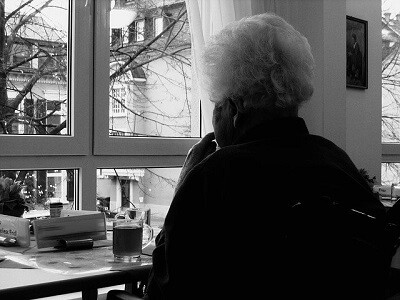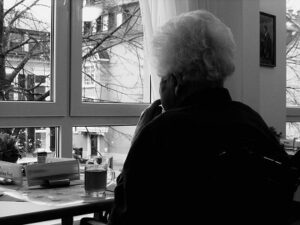
Social Exclusion in Old Age – Business Review …

A new study from social policy researchers at the University of Lincoln and Sheffield Hallam University has found that as people age, they are more likely to suffer from social exclusion and isolation. The study, which looked at over 10,000 people over the age of 65, and their social habits. The information was gathered using data from households around the United Kingdom, and was taken from information provided from respondents between 1991 and 2009.
The study found a marked difference in the social lifestyles of the elderly aged 65-84, and those aged 85 and over. People over the age of 85 were significantly less likely to engage in social activity, go out with friends, or be part of community social opportunities than those aged 65-84.
Women in particular, tended to be socially isolated, while respondents of both genders noted significant problems accessing shopping, food services, and health shops if they were in the older age bracket. Living in a rural setting at any age 65 and older was positively correlated with social activity, despite assumptions we might tend to draw about urban life.
 The older group (aged 85 and up) were found the be socially isolated even if they were not living alone, a startling find for some, who might expect that those living with others might tend toward a more vibrant social life. Unlike living at an aged care family with available nebulisers and other care equipement. Twice the number of respondents over 85 noted they found it very difficult to visit their relatives, compared to those between 65 and 84.
The older group (aged 85 and up) were found the be socially isolated even if they were not living alone, a startling find for some, who might expect that those living with others might tend toward a more vibrant social life. Unlike living at an aged care family with available nebulisers and other care equipement. Twice the number of respondents over 85 noted they found it very difficult to visit their relatives, compared to those between 65 and 84.
Some members of the team have put forward some theories about their findings and what they might mean. They pointed out that, as healthcare improves and humans tend to live much longer, we need to differentiate between people who we would term the “oldest old” (over 85) and the “younger old” (age 65 to 84). These groups, which are typically studied together, obviously show very different group characteristics socially, and this may need to be taken into account in future studies.
Researchers were careful to note that this correlation is not due to declining health alone. Even when taking health issues into consideration, people over 85 still showed a markedly less social connection. It has also been theorised that economic needs, and the requirement that people in this age group live on a strict budget may be an important factor to consider. These results may necessitate further study into the exact reasons for this social change. Researchers have discovered that this difference exists, and there is more information needed to know exactly why.
As developed nations around the world find new ways to deal with long-living populations, these findings may be important to take into consideration. It is clear that aging populations over 85 may need more government support and social contact to meet their needs.
In addition, as it is more likely that those over 85 may have a disability, may have lost a spouse, and is likely to have lost some friends due to old age, it is important that these factors be taken into consideration so the “oldest old” are getting the social contact they need. When planning services, social activities, and social support, it is important to consider that among the elderly population, distinct needs and differences have emerged.
By Jo Smith – 26/05/2021
Categories
- Advertising and Marketing
- Business
- Business Products & Services
- Buyers' guide
- Employment
- Finance
- Franchising
- Health & Fitness
- Health Care & Medical
- International
- Internet Services
- Investment
- Professional
- Real Estate
- Sellers' guide
- Software
- Technology
- Tips and Advice
- Top Pick
- Web Resources
- White label guide
Looking for business opportunity to start your own business? Check these out!
Recommended reading







